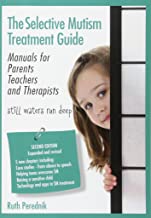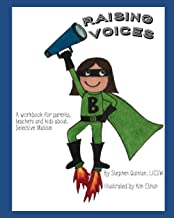Selective Mutism
Selective Mutism is a complex childhood anxiety disorder characterized by a child’s inability to speak and communicate effectively in select social settings, such as school. These children are able to speak and communicate in settings where they are comfortable, secure, and relaxed.
Cluster Number:
Wiki Number: PW200
Diagnosis: Selective Mutism
US Patients:
World Patients: .71 of 1% in 2002
Sex Ratio:
Age Onset: early childhood
Brain Area: amygdalas may become over-excited and this is a fight-flight response;
Symptoms: anxiety where people cannot speak in specific situations or places or to specific persons along with a social anxiety disorder.
Progression: Gets worse with age, contributing to depression, further anxiety and other social and emotional problems
Causes: some have experienced trauma; others, not
Medications: An SSRI, fluoxetine, has helped some children.
Therapies: Only change schools if the new one will be more supportive. Different techniques are described in the Wikipedia article.
Youtube Video: Evidence-Based Treatment for Selective Mutism
Amazon or Library Book:
The Selective Mutism Treatment Guide
Amazon or Library Book:
Raising Voices
Click the book to link or order from Amazon.
Click the book to link or order from Amazon.


